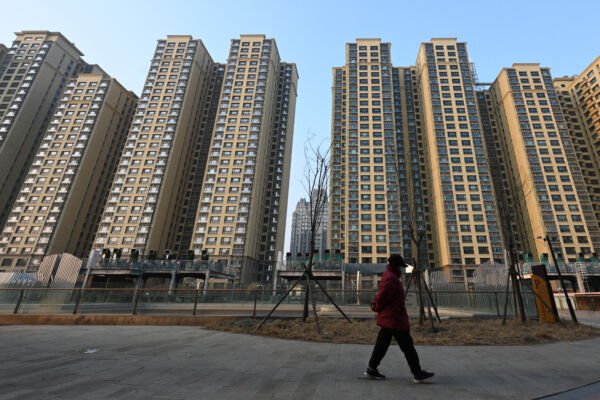Breaking News: Evergrande Group and its founder Xu Jiayin have once again been subjected to consumption restrictions, leaving homeowners who have purchased Evergrande’s unfinished properties with no relief in sight. Sanctions against Evergrande in the past have only added to the woes of homeowners, leading to questions about the actual effectiveness of regulatory oversight by the Chinese authorities.
On November 26th, Evergrande announced that the Guangzhou Nansha District Court issued an order on November 14th. According to the order, due to the company’s failure to fulfill payment obligations as per the enforcement notice issued by the Guangzhou court, the court has imposed restrictions on Evergrande and Xu Jiayin, limiting their non-essential consumption in high-end areas.
Additionally, the trading of the company’s shares has been suspended since January 29, 2024, and will remain halted until further notice.
According to a previous announcement by Evergrande, based on an order issued on November 11, the court directed to cancel the hearing scheduled for November 14, 2024, and postponed it, indicating that the hearing date may not be earlier than February 20, 2025.
Due to being trapped in a debt crisis and facing forced measures against Xu Jiayin, Evergrande Group has faced a series of sanctions. This includes the Shenzhen Stock Exchange banning Evergrande Real Estate from applying for bond issuance for the next three years, explicitly stating that its holding subsidiaries and related parties are also prohibited from any form of bond issuance during this period.
For the many people who have purchased Evergrande properties, these sanctions have been a further blow. The debt crisis of Evergrande Real Estate has directly led to many of its development projects facing the risks of suspension or abandonment, leaving buyers not only unable to move into their new homes on time but also facing economic losses, causing them significant hardship.
In response, there has been strong public outcry online, with many questioning the decisions of the regulatory authorities and the actual impact of their oversight. There are strong suggestions for senior executives of Evergrande Real Estate to come forward voluntarily and take responsibility. Among the notable suggestions is the call for top executives to return part of their bonuses and salaries to compensate buyers for the economic losses incurred due to company issues, addressing the urgent needs of homeowners.
For buyers, their plight is becoming increasingly dire. The debt crisis of Evergrande Real Estate has turned the homes they purchased into unfinished properties. This has brought them immense psychological pressure and financial losses. Therefore, buyers have been engaging in various efforts to protect their rights and seek ways to move into their new homes as soon as possible.
As once the largest real estate developer in China, Evergrande Group had expanded widely across the country. However, due to being mired in debt, a large number of its real estate projects have been left unfinished, affecting millions of homeowners who are unable to move in.
According to reports from mainland media, the number of unfinished Evergrande properties in various regions is staggering: 8 in Ningxia, 8 in Shanghai, 14 in Gansu, 15 in Beijing, 15 in Hainan, 18 in Yunnan, 19 in Tianjin, 21 in Jilin, 25 in Xinjiang, 25 in Shaanxi, 27 in Inner Mongolia, 28 in Guizhou, 29 in Heilongjiang, 35 in Shanxi, 37 in Jiangxi, 41 in Fujian, 45 in Guangxi, 49 in Henan, and 50 in Anhui.
Moreover, provinces with over 50 unfinished Evergrande projects include Zhejiang with 58, Hubei with 59, Liaoning with 60, Hunan with 64, Shandong with 67, Hebei with 70, Chongqing with 74, and Sichuan with 85. Jiangsu has over 100 unfinished projects with 115, while Guangdong leads with 157.
According to estimates from multiple mainland media outlets, the number of unfinished Evergrande properties has reached 1.62 million units, impacting 6 million homeowners.

